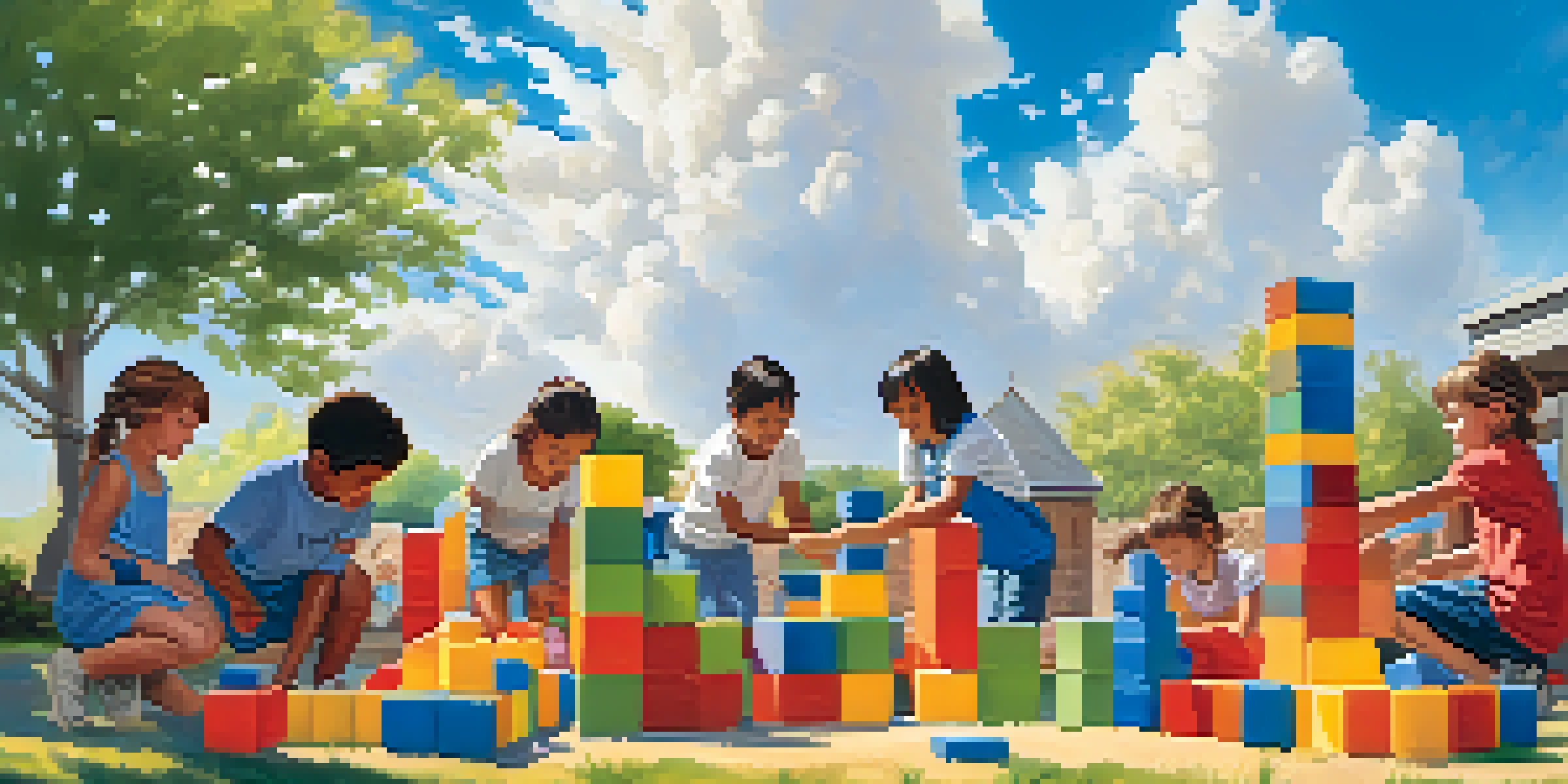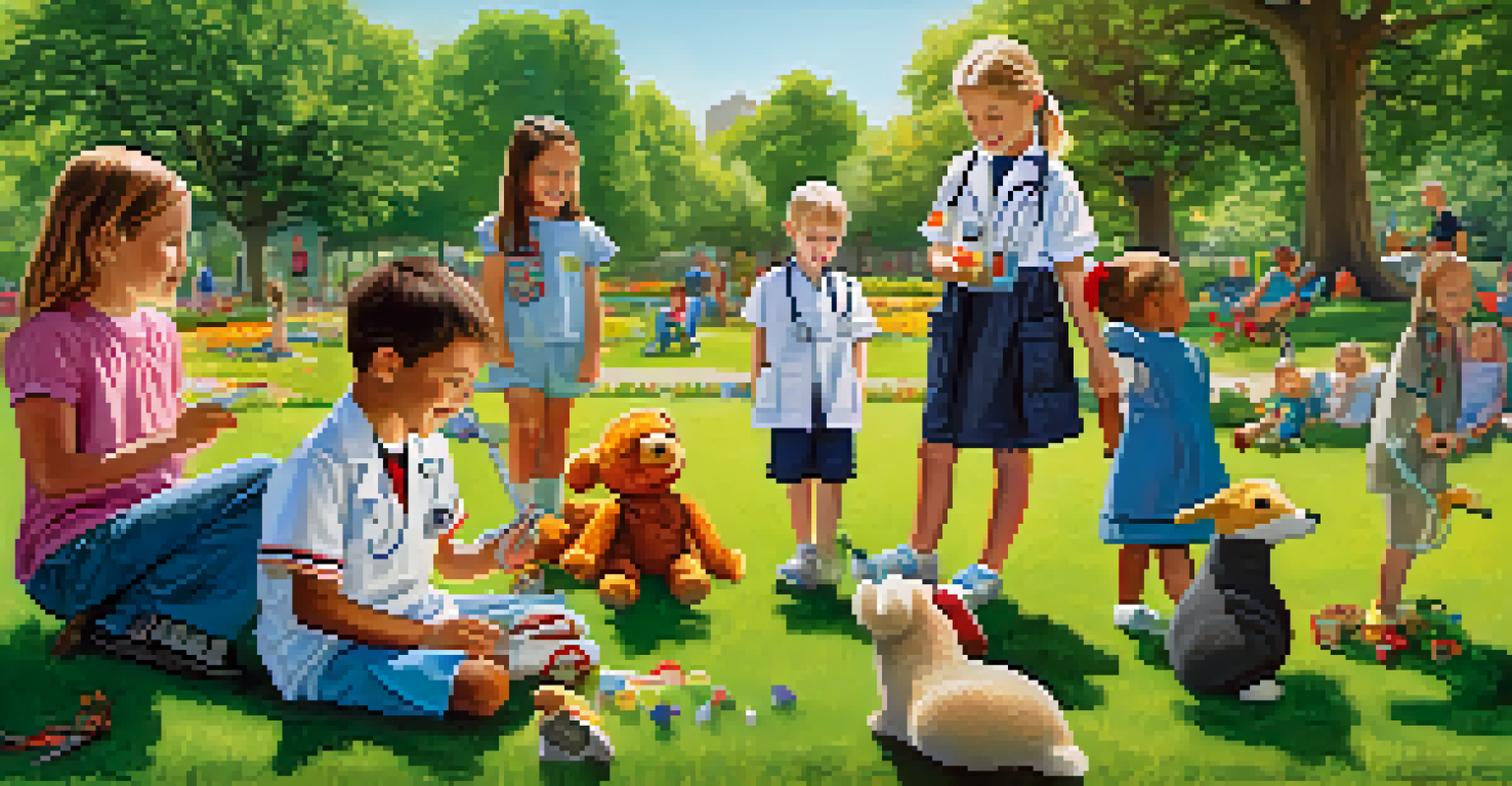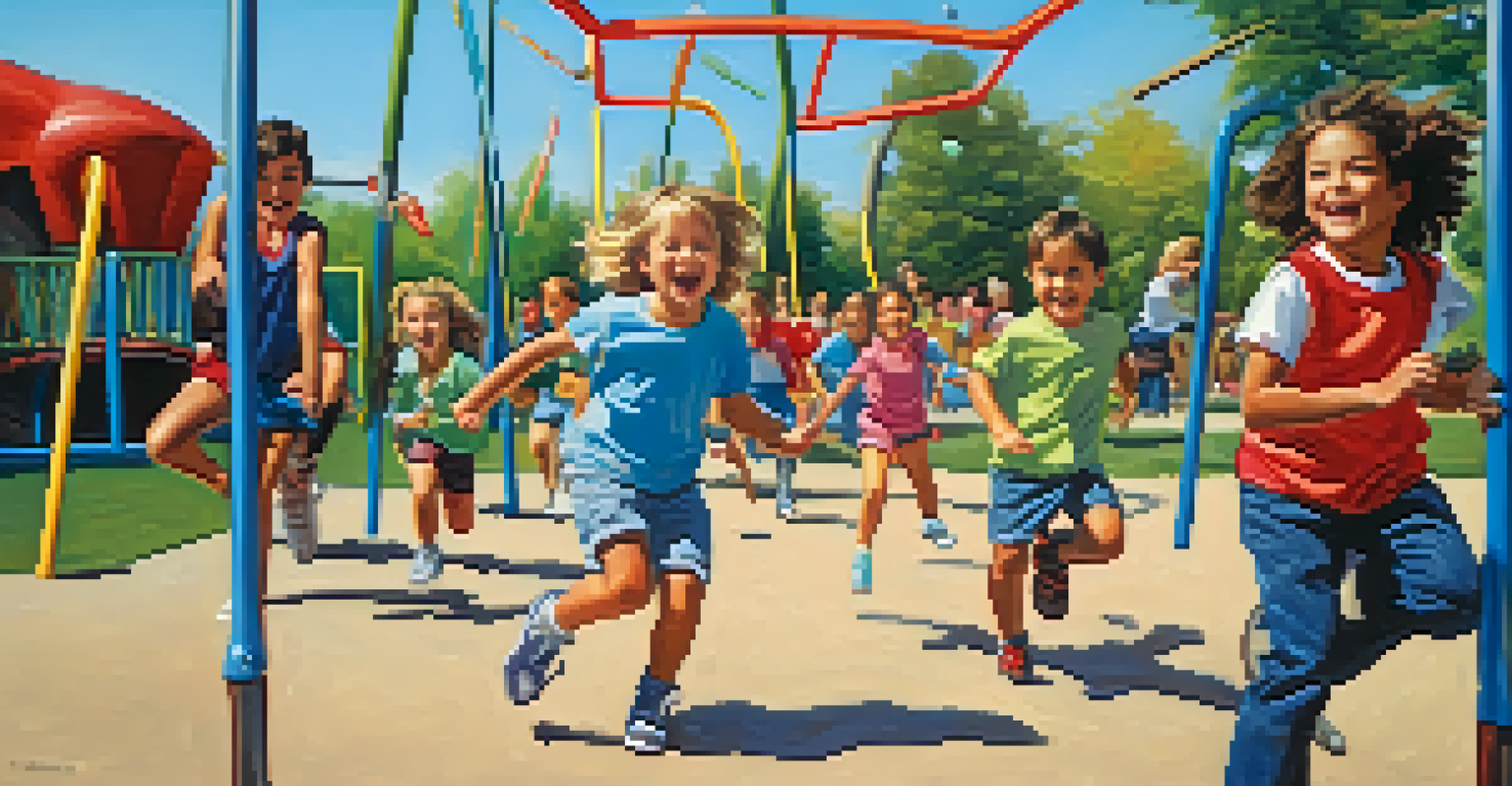The Role of Play in Social Learning During Childhood

What is Social Learning and Why is it Important?
Social learning involves acquiring behaviors and skills through observation and interaction with others. For children, this process is crucial as it helps them navigate their social environment. By engaging with peers, they learn not just what to do but also how to communicate, empathize, and resolve conflicts.
Play is the highest form of research.
Through social learning, children develop essential life skills that prepare them for future interactions. For instance, they learn to share, take turns, and collaborate, which are foundational for building friendships. This learning often occurs in informal settings, such as during play, where the stakes feel lower, and exploration is encouraged.
Ultimately, social learning shapes a child's identity and self-esteem. When children successfully engage with their peers, they gain confidence and a sense of belonging, which is vital for their overall emotional and social development.
The Connection Between Play and Social Skills
Play serves as a natural context for children to practice social skills. Whether it's a game of tag or building a fort, these activities require communication and teamwork, allowing children to learn how to express their thoughts and feelings. Through play, they also learn to read social cues, such as body language and tone of voice.

For example, when children play together, they often negotiate roles or rules, which fosters problem-solving skills. This negotiation process teaches them that compromise and understanding others' perspectives are essential for successful interactions. As they navigate these scenarios, they are essentially rehearsing for real-life social situations.
Social Learning Shapes Development
Through social learning, children acquire vital life skills such as communication and empathy, which are essential for their emotional and social growth.
Moreover, engaging in play with peers helps children build empathy. They begin to understand their friends' emotions, which strengthens their ability to connect with others and respond appropriately. This emotional intelligence is a key component of effective communication and relationship-building throughout life.
Types of Play That Enhance Social Learning
Different types of play contribute uniquely to social learning. Cooperative play, for instance, involves children working together towards a common goal, fostering teamwork and collaboration. Activities like group sports or crafting projects not only build social skills but also strengthen relationships.
Children learn as they play. Most importantly, in play, children learn how to learn.
On the other hand, imaginative or pretend play allows children to explore various roles and scenarios. This type of play encourages creativity and helps children understand different perspectives. When children act out roles, whether as doctors, parents, or superheroes, they learn about empathy and the complexities of human interactions.
Lastly, physical play, such as running or climbing, often requires children to negotiate space and movement with others. This type of play not only enhances physical coordination but also promotes social negotiation skills, teaching children how to share space and respect each other's boundaries.
The Role of Adults in Facilitating Play
While play is a natural process for children, adults play a vital role in facilitating these experiences. By providing safe and engaging environments, adults can encourage children to explore various types of play. This support can come in many forms, from organizing playdates to creating play-friendly spaces in homes and schools.
Additionally, adults can model appropriate social behaviors during play. By demonstrating how to communicate effectively, resolve conflicts, and show empathy, caregivers can guide children in developing their social skills. This modeling reinforces the lessons children learn through their interactions with peers.
Play Enhances Social Skills
Engaging in various types of play helps children practice teamwork, negotiation, and emotional intelligence, all crucial for building relationships.
Moreover, adults can step in as facilitators when conflicts arise. Instead of simply resolving disputes for children, guiding them through the process of conflict resolution can teach invaluable lessons. This involvement not only enhances social learning but also empowers children to handle similar situations independently in the future.
The Impact of Play on Emotional Development
Play is not just about social skills; it also significantly impacts emotional development. When children engage in play, they often express a range of emotions, such as joy, frustration, and excitement. This expression is crucial for emotional regulation, as it allows them to process their feelings in a safe environment.
Through playful interactions, children learn to manage their emotions and recognize feelings in others. For instance, when a game doesn't go as planned, children practice coping strategies and resilience. These experiences teach them that it's okay to feel upset and that they can bounce back from disappointments.
Furthermore, play can act as a stress relief mechanism for children. Engaging in fun activities allows them to escape daily pressures and find joy, which contributes positively to their mental health. A well-rounded emotional development during childhood lays the groundwork for healthier relationships and emotional stability in adulthood.
Challenges in Play and Social Learning
Despite the benefits of play, various challenges can hinder social learning. For instance, children with social anxiety may struggle to engage in play with peers, missing out on valuable interactions. This can create a barrier to developing social skills and forming friendships, further exacerbating feelings of isolation.
Additionally, the rise of technology has changed the landscape of play. With many children gravitating towards screens, opportunities for face-to-face interactions may be diminished. While digital play has its advantages, it often lacks the social nuances that in-person interactions provide, which are essential for developing social skills.
Adults Facilitate Play Effectively
Adults play a key role in creating supportive environments for play, modeling social behaviors, and guiding children through conflict resolution.
Moreover, some children may face environmental factors that limit their play opportunities, such as lack of safe spaces or supportive peers. Addressing these challenges is crucial for ensuring that all children can benefit from play as a means of social learning and emotional growth.
Promoting Play for Enhanced Social Learning
To maximize the benefits of play in social learning, it's essential to promote various play opportunities. Parents and educators can encourage play by providing diverse materials and settings that stimulate creativity and collaboration. Simple items like blocks, art supplies, or outdoor spaces can inspire imaginative and cooperative play.
Furthermore, fostering a supportive community around children can enhance their play experiences. Encouraging friendships and social connections can create a network where children feel comfortable exploring social dynamics. Playgroups, community events, and school activities can help establish these connections, enriching children's social learning.

Finally, valuing and prioritizing play in both home and educational settings is crucial. By recognizing play as a vital component of childhood development, adults can advocate for policies and practices that support play-based learning. This advocacy ensures that children receive the full benefits of play in their social and emotional development.